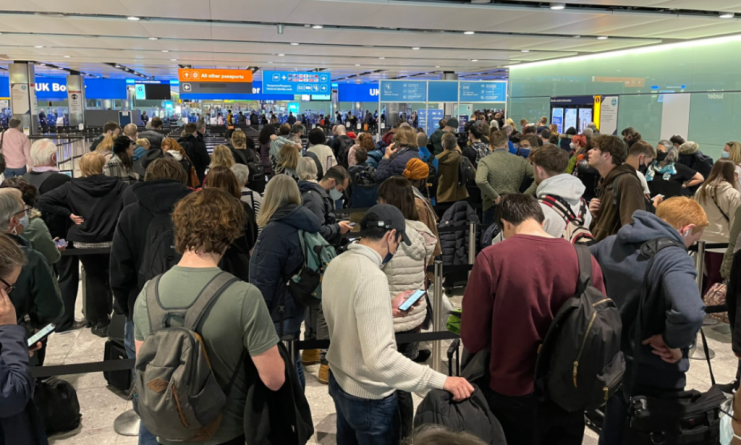Staff shortages could cause summer travel chaos again – and 40 per cent of industry bosses blame Brexit

Summer 2023 could spell additional trouble for the UK travel industry, with over half of rail and airline operators worrying about future staffing shortages – and almost 40 per cent blaming Brexit.
Data published today by software company SAP show that 55 per cent of industry decision makers believe staffing challenges will impact customers’ travel plans this year with 34 per cent saying issues will peak in the summer months.
It comes as the UK aviation industry was plagued by severe delays and disruption over the past summer to a boom in travel demand combined with staff shortages.
Airlines and airport executives blamed each other for the travel chaos, with each side arguing the other didn’t hire enough staff to cater to the post-pandemic surge of air travel.
Today’s figures have confirmed the trend, with 40 per cent of senior executives agreeing that the issues were caused by “an inability to forecast supply and demand.”
Brexit to blame?
Another 40 per cent said that last year’s disruption was due to the lack of collaboration and intelligence sharing between industry and government, whilst 38 per cent blamed Brexit for constraining the pool of available talent.
Ryanair’s boss Michael O’Leary called on the government in July to implement post-Brexit immigration rules with a “bit more common sense.”
The chief executive said it was easier for the low-cost carrier to reclute extra-EU nationals to work in Britain than to get visas for “Portuguese or Italian or Slovakian youngsters.”
To address labour shortfalls, around 35 per cent of respondents believe they will have to sacrifice their environmental, social and governance (ESG) targets in favour of staffing.
According to SAP’s head of telco, media and service industries Dominique Kunze, airline and rail businesses don’t have to sacrifice ESG as they can rely on technology.
“This allows travel providers to focus on what they do best – helping people get to where they need to be in the most environmentally friendly and cost-efficient way possible,” she said.